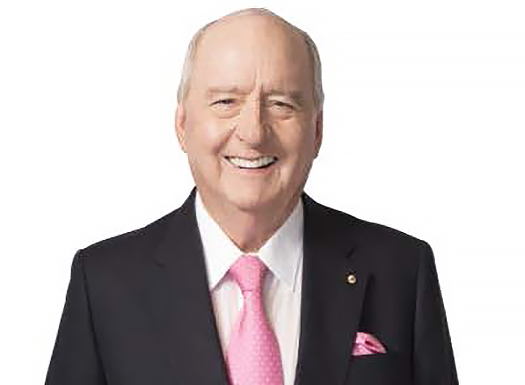The ACMA has found that 2GB breached commercial radio disclosure rules in 2019, during broadcasts of The Alan Jones Breakfast Show, by not informing its listeners about a commercial agreement the program had with The Star Entertainment Group when Jones was commenting on a development project.
Jones has since left 2GB and now appears on pay tv.
In a statement released today, the ACMA said,
An Australian Communications and Media Authority (ACMA) investigation found 2GB failed to disclose The Star’s sponsorship of the program on multiple occasions in September and October 2019 when Jones discussed the Ritz-Carlton development, a project commissioned by The Star.
ACMA Chair Nerida O’Loughlin said the comments breached the Commercial Radio Current Affairs Disclosure Standard.
“Licensees and presenters must let their audience know if a sponsor has a commercial interest in material being broadcast that is directly favourable to the sponsor.
“These rules exist so that audiences are properly informed and are able to make up their own minds about what they hear on commercial radio.
“Commercial radio disclosure rules have been in place since 2000, and it is disappointing that 2GB failed to meet their obligations during these broadcasts,” Ms O’Loughlin said.
The ACMA has given 2GB a remedial direction which will require relevant staff including presenters, producers, and commercial and sales staff to undertake formal training on the requirements of the Disclosure Standard.
2GB must also report back to the ACMA on what processes it has put in place to ensure it makes disclosures on-air and online, as required.
If a licensee does not comply with a remedial direction, the ACMA may seek civil penalties.
The standard requires that disclosure announcements must be made at the time of, and as part of, the broadcast. The licensee must also publish specified information about current commercial agreements on an online register on its website.
Subscribe to the radioinfo podcast on these platforms: Acast, Apple iTunes Podcasts, Podtail, Spotify, Google Podcasts, TuneIn, or wherever you get your podcasts.




In the late 1980s, the then "Bond Corporation" owned retailer "Waltons" and the Nine Network, there was an item on "National Nine News" announcing a major redevelopment of the "Waltons" retail site on the corner of George and Park streets, Sydney. The news item featured an artist's impression of the development that was to replace the retail store.
Sure, it was news, but at the same time, the broadcaster, the Nine Network did not disclose that Waltons and the Nine Network was owned by the "Bond Corporation".
When an news item appears on TV, there should be a declaration by the news broadcaster that the news item is sponsored content.
It seems obvious that the sponsored content on TV news comes from retailers. For example, weeks before the commencement of the school term, you'll see a story of a particular retailer talking about their stores selling pens, pencils, notebooks and other kinds of stationery.
Another example is that a large retailing warehouse is being built in the western suburbs of Sydney (or any other capital city), offering 'huge' savings on groceries.
Why don't the broadcasters disclose that these news items are sponsored content? There is nothing to be ashamed of. It is a commercial business.
In a similar vein, there are regular travel, cooking, financial and wellness segments on commercial radio. Nothing wrong with that. But the broadcasters should explicitly say that the particular segment is sponsored. While the listener is focussed to listening to the segment, the particular segment's industry and speciality is not the only game in town.
One has to listen to various advertisements from "all-on-four"/"dental implant" providers apart from the sponsored segment to demonstrate that the sponsor of the sponsored segment is not the only provider of dental implant services.
Yes these sponsored segments are informative but at the same time they are not the only 'game' in town.
So it would be a courtesy to the listener and viewer for the broadcaster that the particular segment is sponsored.
However, The problem is not so obvious where a commentator passes paid content for the commentator's own editorial comment. The recent ACMA decision by a broadcaster breaching the disclosure rules as mentioned in this article is not new since the ABC's investigation of the "cash-for-comments" in 1999. reference https://aso.gov.au/titles/tv/media-watch-series-11-ep-18/clip1/.
At the same time, whenever a commentator is trying to win the minds and hearts of the viewer and listener, one has to ask whether the comment is sponsored.
Similarly, the broadcast and TV industry is not alone. One has to be critical of content appearing on the internet, particularly social media and review sites and critically ask questions of the content whether it is sponsored, fake or astroturfed.
There may well be a breach of the Australian Consumer for false and misleading conduct.
Thank you,
Anthony of exciting Belfield